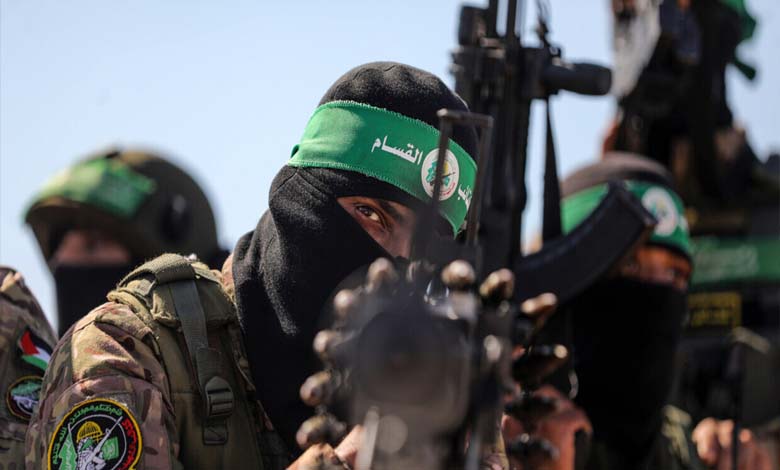Hamas Forced to Accept Any Ceasefire Offer as Options Dwindle
The halt of Qatari mediation and the potential closure of Hamas’s office in Doha, along with the expulsion of its leaders, is inevitably impacting the movement’s political and operational standing.

The Palestinian Islamic Resistance Movement “Hamas” has reiterated its willingness to reach a ceasefire agreement in Gaza and accept any proposal that would end the war. This stance appears to reflect the movement’s declining ability to sustain a prolonged confrontation and its dwindling options, particularly with the cessation of Qatari mediation and the possible closure of its Doha office. The future location of leaders involved in negotiations remains uncertain.
-
How Will Hamas Continue to Fight in Gaza After Losing Its Leaders? Expert Answers
-
Israel Accuses 6 Al Jazeera Journalists in Gaza of Belonging to Hamas and Islamic Jihad
Hamas fighters’ ability to carry out significant attacks has diminished compared to the early months of the war when they launched rocket salvos at Israeli areas. This suggests a state of exhaustion, despite repeated claims from field leaders that the movement remains resilient.
On Friday, Hamas called on U.S. President-elect Donald Trump to pressure Israel—a prospect that seems unlikely given Washington’s steadfast support for Israel. No signs of a truce in the bloody conflict are apparent, especially as Hamas demands an Israeli withdrawal from Gaza, a demand rejected by Israeli Prime Minister Benjamin Netanyahu, who is determined to crush the movement.
-
The Killing of Sinwar returns power to Hamas Leaders Abroad
-
Sinwar and the hostages… The revelation of a “safe exit deal” for Hamas leaders from Gaza
Bassem Naim, a member of Hamas’s political bureau, stated, “We have not received any new proposals, but we will positively consider any offer presented to us.” He added, “The movement has informed mediators that it supports any proposal or offer that achieves a definitive ceasefire, military withdrawal from Gaza, the return of displaced persons, a serious prisoner exchange, the entry of humanitarian aid, and reconstruction efforts.”
International reports indicate that Hamas has lost thousands of fighters since the war began, including prominent leaders, while its military capabilities have significantly declined following the destruction of much of its arsenal.
-
“Al-Mawasi Raids”: Israel Targets 3 Hamas Officials
-
After new demands from Hamas and Israel’s intransigence… have the Gaza truce negotiations stalled?
Israel’s Channel 12 estimated that Hamas has lost approximately 75% of its military capacity since the onset of the conflict.
During Hamas’s attack on Israel on October 7, 2023, 251 people were abducted and taken to Gaza. To date, 97 hostages remain in captivity, including 34 declared dead by the Israeli army.
Since the sole truce reached in late November 2023, which facilitated the release of 100 hostages, negotiations have failed, prompting Qatar, a key mediator, to suspend its role in talks between Israel and Hamas.
-
Where is Sinwar in the Gaza Negotiations? Hamas Leader Reveals His Role and Communication Methods
-
Are the Muslim Brotherhood Intervening in the Appointment of a New President for Hamas? What’s the Context?
The Israeli military campaign in Gaza, launched in response to Hamas’s attack, has resulted in 43,764 deaths, mostly civilians, according to the Hamas-run Ministry of Health.
In this context, Hamas condemned statements by the U.S. State Department denying any forced displacement of Palestinians in Gaza, describing this stance as “direct support for the unprecedented crimes committed in the region with American backing.”
The movement stated, “The U.S. administration’s policy of denying genocide, massacres, and ethnic cleansing in Gaza confirms its responsibility for the ongoing war crimes in the region for over 400 days.”
-
How the Brotherhood’s Media Handled Haniyeh’s Assassination: Has Hamas Lost Its Importance to the Brotherhood?
-
Haniyeh’s Succession Tests Hamas’s Cohesion












